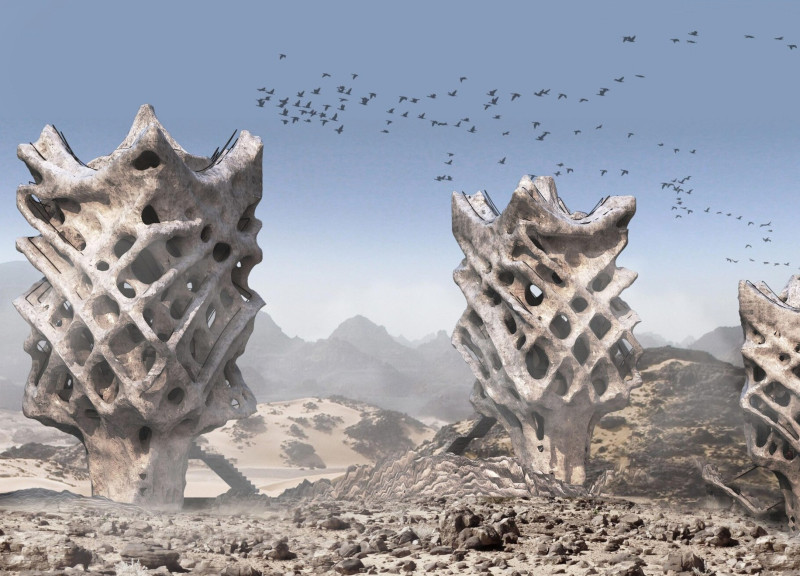5 key facts about this project
The African Sahara Micro Home project embodies a synthesis of traditional architectural principles and modern technological advancements. Positioned within the arid landscapes of the Sahara, this micro home serves multiple functions, prioritizing sustainability and environmental adaptability. It stands as a representation of contemporary living that seeks to harmonize with its surrounding context while making effective use of local materials.
This architectural design emphasizes a compact and efficient living space that supports critical daily activities, such as cooking, sleeping, and social interaction. The layout facilitates a comfortable living experience in a challenging climate, reflecting a design approach that prioritizes functionality without compromising aesthetic value.
Innovative Use of Local Materials
The project’s commitment to sustainability is manifested through the careful selection of local materials, including sand silica and glass silica, which are utilized in the 3D printing process. This approach not only reduces environmental impact due to minimized transportation needs but also aligns with traditional practices in the region. These materials contribute to the durability and thermal efficiency of the micro home, ensuring a comfortable indoor climate despite external temperature fluctuations.
The integration of metal reinforcement within the design further enhances structural stability, allowing the home to withstand the harsh desert environment. This unique blend of materials showcases an architectural strategy that respects local traditions while embracing modern construction techniques.
Adaptive Architectural Features
The African Sahara Micro Home incorporates several distinctive design features that address both its environmental context and cultural significance. The organic shapes that characterize the structure mimic natural forms and enhance the visual connection to the landscape. Careful attention to ventilation design is achieved through strategically placed openings, which promote airflow and passive cooling, core principles in traditional desert architecture.
In addition, the elevated structure created by lifting the home off the ground fosters natural ventilation and provides additional utility with a walkable space underneath, effectively utilizing the plot's footprint. This aspect of the design reflects an understanding of historical building methods while adapting them to contemporary needs.
The project not only meets the fundamental requirements for shelter but also engages with the cultural practices of community living by incorporating multiple functional zones within the micro home. This aspect illustrates a focus on creating spaces that foster interaction and connectivity among inhabitants, thus enriching the living experience.
The African Sahara Micro Home serves as a practical example of how architecture can innovate while respecting and reinterpreting cultural heritage. To deepen your understanding of this architectural exploration, be sure to review the architectural plans, sections, and designs related to the project for further insights into its unique concepts and methodologies.





















































